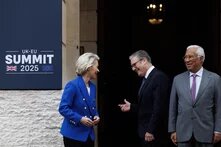
The Protocol on Ireland/Northern Ireland not only remains a matter of contention in UK-EU relations but is also very much an issue that divides opinion in Northern Ireland. Polling data that we have collected allows us to see what concerns voters in Northern Ireland most about the Protocol, how opinion has evolved since the start of 2021, and the nature of the divisions that exist over it. It also shows how voters want those who won seats in the Northern Ireland Assembly elections on 5 May 2022 to vote in 2024 on the endurance of core elements of the Protocol.

Northern Ireland is well-known for its political and social divisions. Few issues fail to split opinion here, and Brexit is no exception. Yet attitudes can and do change. This is clear from polling conducted on Brexit and the Protocol on Ireland/Northern Ireland during 2021-22.
Under the Post-Brexit Governance NI project (funded by the UK’s Economic and Social Research Council), we commissioned polling every four months from an online panel of over 12,000 adults in Northern Ireland. Across the four polls conducted by LucidTalk since February 2021, we have found notable consistency on some of the most fundamental questions.
Unsurprisingly, given the 56% ‘Remain’ vote in Northern Ireland in the 2016 referendum, a majority (59%) of our respondents continue to hold a negative view of Brexit and its impact on the United Kingdom. A consistent two-thirds of our respondents have held the view that Northern Ireland does need particular arrangements in order to manage the effects of Brexit on this unique region.
The Protocol on Ireland/Northern Ireland in the EU/UK Withdrawal Agreement (October 2019) was intended to provide such arrangements. Its objectives are to ‘set out arrangements necessary to address the unique circumstances on the island of Ireland, to maintain the necessary conditions for continued North-South cooperation, to avoid a hard border and to protect the 1998 [Belfast/Good Friday] Agreement’. In so doing, the Protocol sees Northern Ireland remain de facto within the EU’s internal market for goods and its customs territory. This means that physical checks and controls on the Irish border (which is a UK-EU border now) are avoided. However, the upshot of this is that such checks and controls now take place on goods moving from Great Britain into Northern Ireland across the Irish Sea. The introduction of such frictions on goods moving within the UK’s internal market has been a cause of particular concern for unionists – those who identify as ‘British’ – in Northern Ireland, many of whom fear that this weakens Northern Ireland’s place in the United Kingdom itself.
We have asked questions in each of our polls about the nature and the impact of the Protocol. Initially, in February 2021, voters were evenly split on whether the Protocol and its dedicated arrangements for Northern Ireland are ‘a good thing’: 43% agreeing versus 44 % disagreeing. By the third poll in October 2021, opinion had shifted, and this was confirmed by the fourth poll in February 2022 which showed that 50% think it is on balance good for Northern Ireland, whilst 41% disagree. Figure 1 (below) shows positive views minus negative ones so as to illustrate where the deepest concerns lie.
Figure 1. The impact of the Protocol: Positive views minus negative views (%) across four polls
In general, voters’ views of the Protocol have become broadly less negative over the course of the last year. This is particularly true in relation to the impact of the Protocol on the Northern Ireland economy. Positive assessments of the Protocol also now outweigh negative ones regarding its role in protecting the 1998 Belfast (Good Friday) Agreement and north-south cooperation on the island of Ireland. However, the proportion of our respondents who hold negative views on the impact of the Protocol in these areas is still considerable (around 2 in 5).
A community divide?
When we look more closely at the poll responses, we see an interesting pattern that helps explain why the divisions are so acute. There is correlation between people’s views on Brexit and their views on the Protocol. By and large, if people opposed Brexit, they support the Protocol. We see this in terms of the most significant variable in determining people’s views on the Protocol, namely whether they voted ‘Leave’ or ‘Remain’ in the 2016 referendum. This is not the same as a unionist/nationalist divide. A large majority of nationalists and those who are non-aligned (i.e. neither ‘unionist’ nor ‘nationalist’) supported ‘Remain’ in the referendum; our polling finds them to be broadly supportive of the Protocol. A majority of unionists supported ‘Leave’ in the referendum, but a significant minority voted ‘Remain’. We see this reflected in our polling too, in that although strong unionists are vigorously opposed to the Protocol, there are mixed views about it from those whose unionist identity is softer.
Those who self-identify as ‘strongly unionist’ or ‘strongly nationalist’ have opinions on Brexit and the Protocol that almost precisely mirror one another at opposite ends of the spectrum. Take opinion on whether the Protocol is ‘on balance good’ for Northern Ireland: across the four polls, the opinions of these hardliners have barely wavered and they remain stubbornly polarised (Figure 2). Broadly speaking, these are the supporters of the two largest parties in Northern Ireland, the pro-Irish unity Sinn Féin and the pro-UK Democratic Unionist Party (DUP). This helps explain why the issues of Brexit and the Protocol have compounded the centrifugal pressures in the Northern Ireland’s power-sharing Executive.
Figure 2. ‘The Protocol is on balance good for N.Ireland’ (Strong Unionists and Strong Nationalists)
Voting for those who will vote on the Protocol
One of the many peculiarities of the Protocol is the provision (Article 18) for a ‘democratic consent vote’ to be held in the Northern Ireland Assembly. This is a vote on the continued application of Articles 5-10 of the Protocol, which avoid a hard land border but effectively mean the ‘Irish Sea border’. This vote is to be held in the first instance at the end of 2024. It means that the elections in Northern Ireland on 5 May 2022 have determined the makeup of the Assembly that will cast this vote. Because of the significance of the 2024 vote, we have asked questions on it across all four polls. There has been consistency across all four polls in people’s views as to how they would like members of the Northern Ireland Assembly (MLAs) to vote in 2024. Half want their MLAs to support the full application of the Protocol in 2024, but 4 in 10 want the opposite (see Figure 3). Only 8% have no preference or no interest, which shows quite how significant the Protocol has become in domestic politics in Northern Ireland.
Figure 3. How would you like your MLA to vote on Articles 5-10 in 2024? (February 2022)
What this means, when taken together with other polling on party support, is that the Assembly election on 5 May 2022 gave rise to a majority of the 90 MLAs who are in favour of the full application of the Protocol in 2024. But the views of those who think the opposite cannot be overlooked. The formation of a Northern Ireland Executive following the election requires consensus. As a consequence, the process could well be delayed by the DUP refusing to join an Executive unless the Protocol – or at least its implementation – is adjusted to reduce the significance of that ‘Irish Sea border’.
Conclusion
These polls, prior to the election on 5 May, were conducted in a context where the Protocol has attracted a great deal of political contestation and popular attention. However, and importantly, the full consequences of Brexit and the Protocol have not yet been fully felt, in part because of the grace periods on the Protocol’s implementation that remain in effect. The matter of how to minimise the negative impact of the full gamut of rules and requirements applying on goods moving from Great Britain into Northern Ireland has been the focus of UK-EU talks since last Autumn. Among the issues being considered are those shown by our polling to be of most concern to people here: the supply of medicines, customs controls, and Northern Ireland having a ‘voice’ in the Protocol’s governance. Some important progress has been made. However, if divisions in Northern Ireland over the Protocol are to be reduced, and contestation reduced in advance of the 2024 vote, other concerns will need to be addressed. This will inevitably require further accommodation on both sides for the unique circumstances of Northern Ireland.




